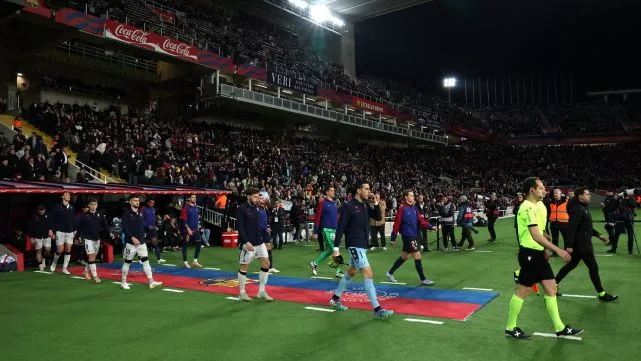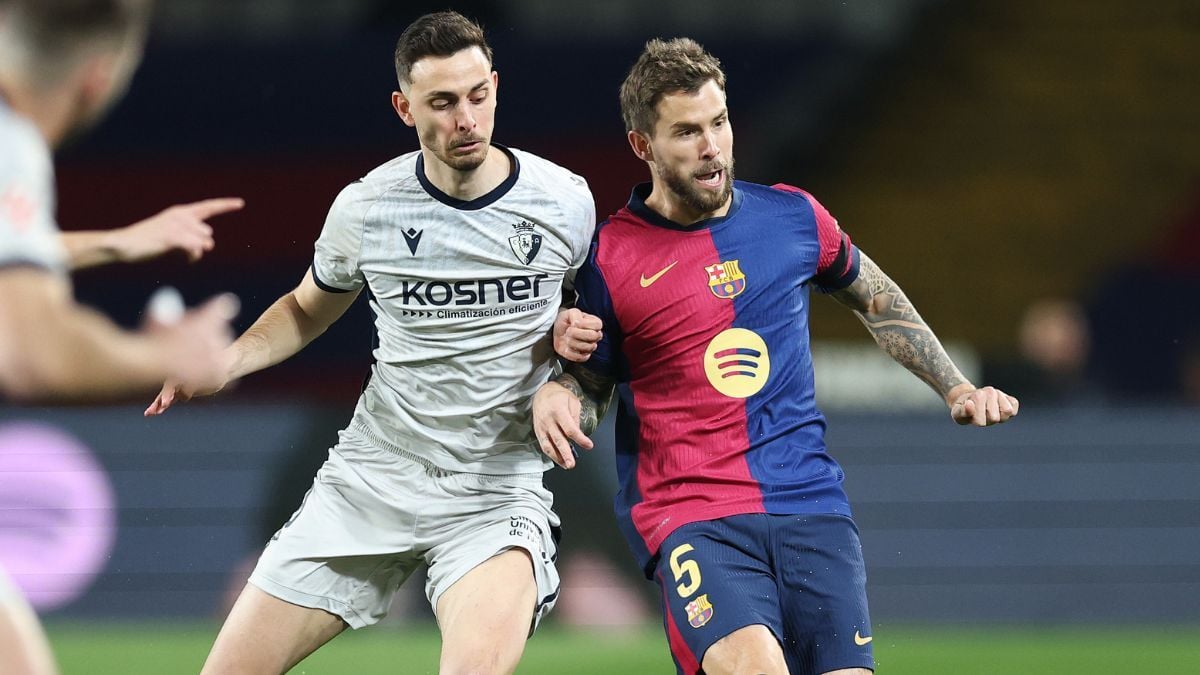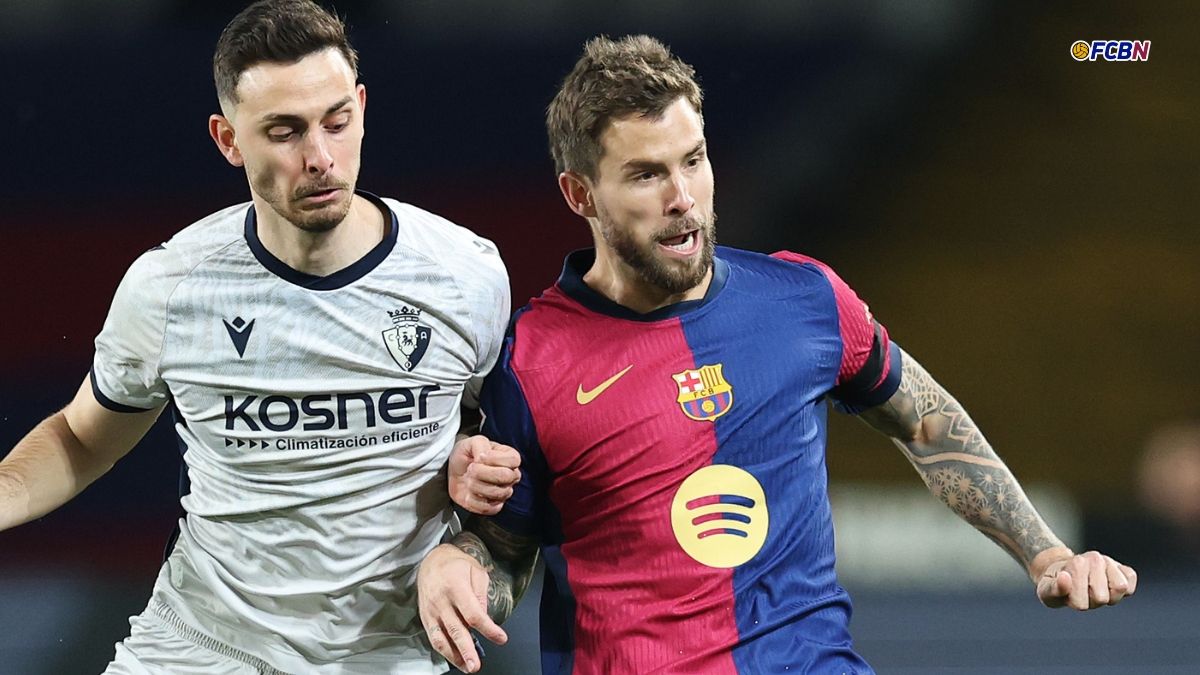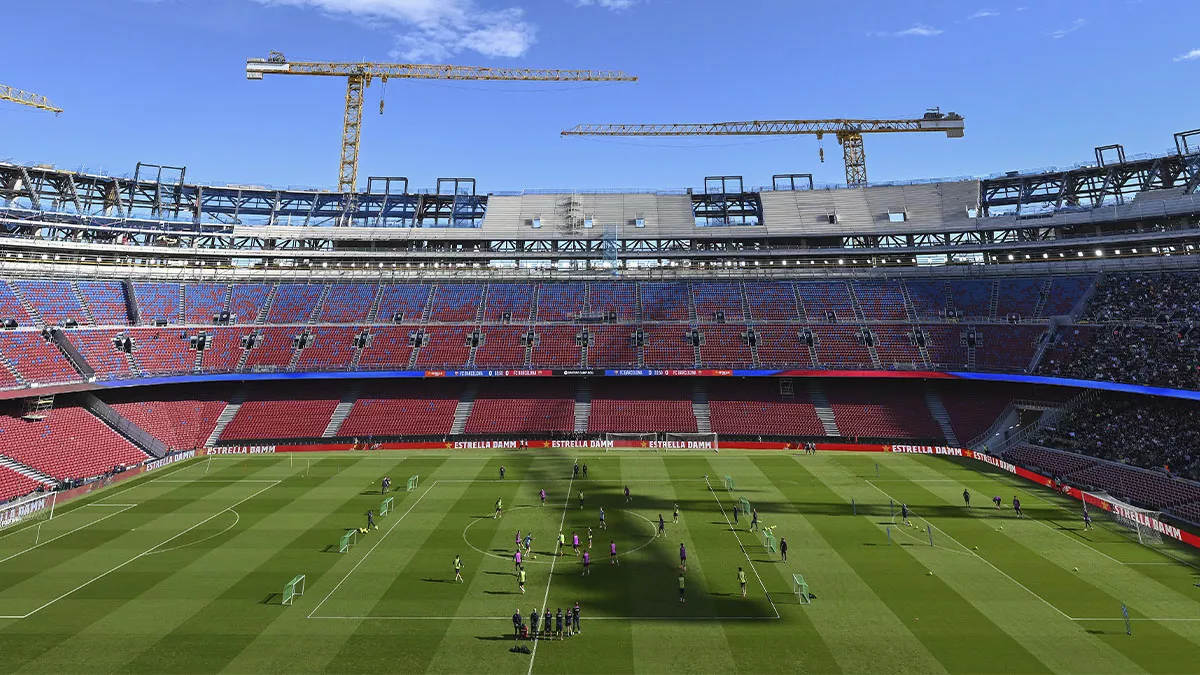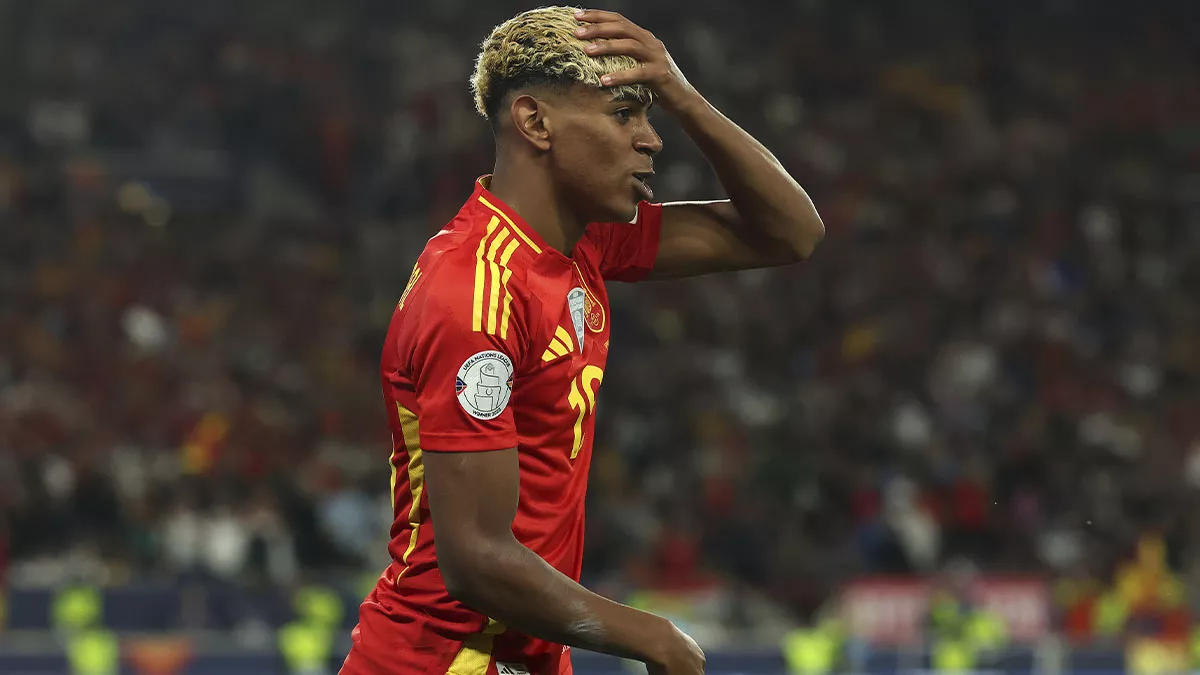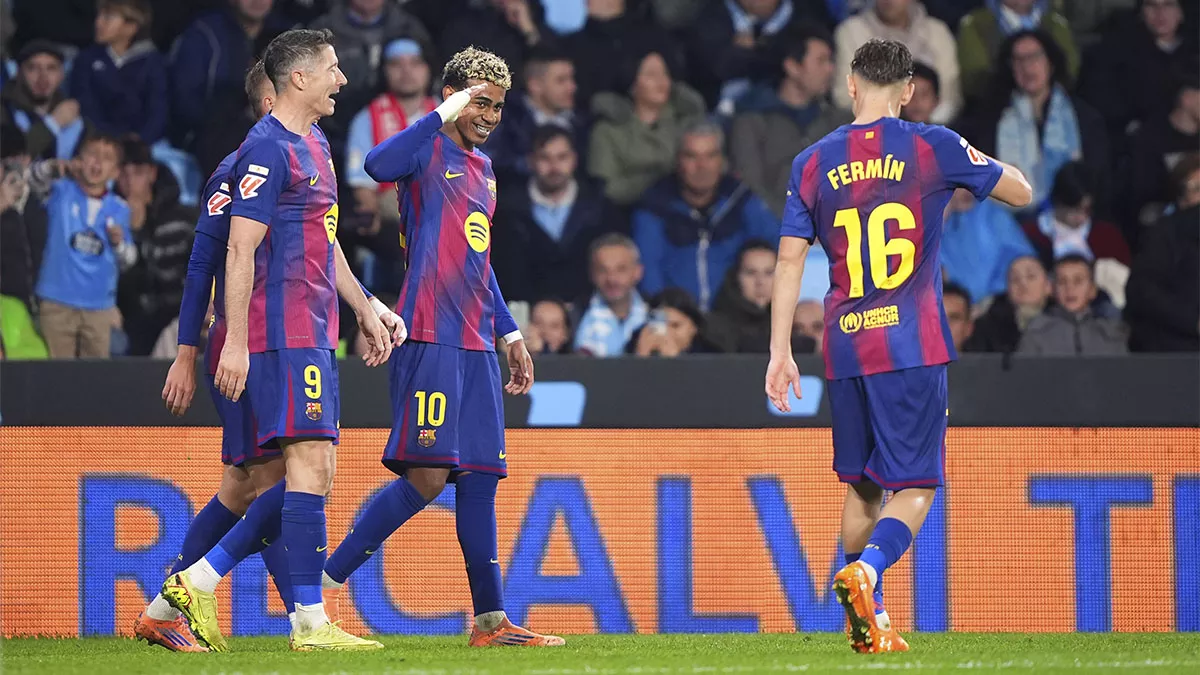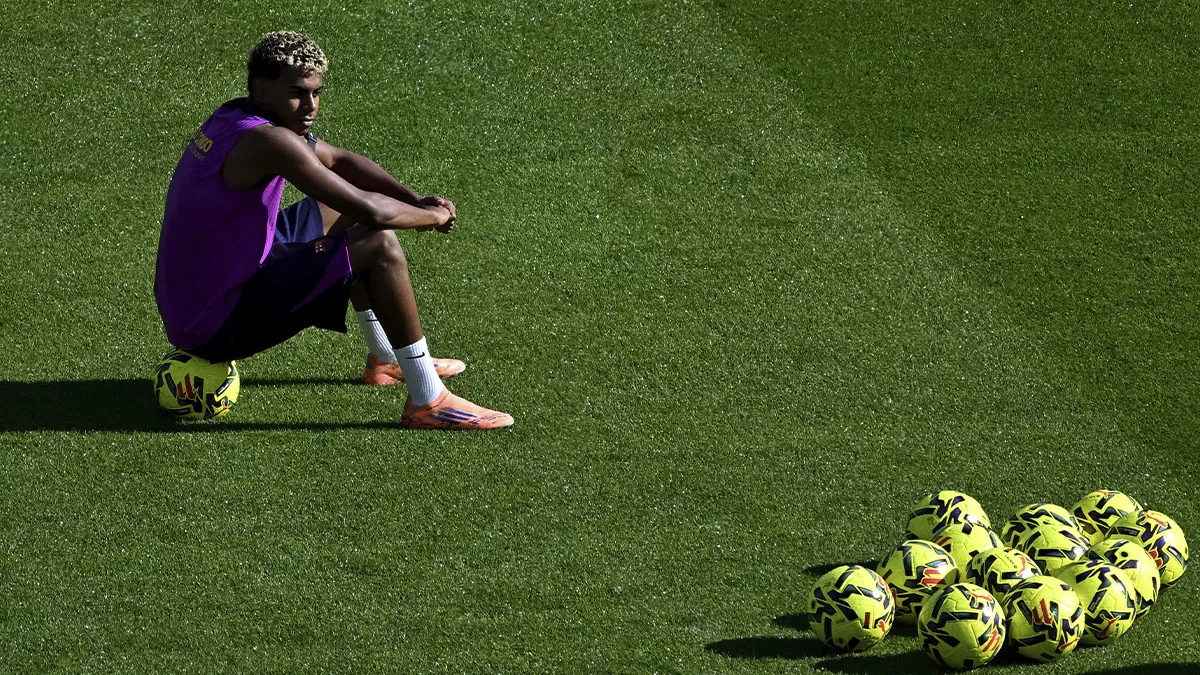
LALIGA EA SPORTS 2024/25
Osasuna considers appealing to the TAD the alignment of Iñigo Martínez, according to COPE
Published New:19/05/2025 - 15:04h
Updated New:19/05/2025 - 18:31h
If the TAD ruled in favor of Osasuna, Real Madrid would be one point behind Barça, and LaLiga could go from a yawn to a heart attack in just 90 minutes.
The history of football is full of epic feats, last-minute goals, and, of course, regulatory claims with more fine print than a contract with the devil. The latest chapter in this tradition stars Osasuna, that stubborn club that refuses to let the cause die.
The Competition Committee and the Appeals Committee have already closed the door on them, but the Navarrese team is not giving up and has found another avenue: the Administrative Court of Sport (TAD). And they are knocking insistently.
The reason? An alleged improper alignment of Iñigo Martínez in matchday 27 of LaLiga. The accused? FC Barcelona. The date of the crime? March 27, 2025. That day, the Basque center-back started against Osasuna after being removed from the Spanish national team due to an injury.
Until then, everything would seem like just another anecdote in the congested calendar. But in the regulations, as in legal thrillers, there is always a lost paragraph that can change everything, or not.
The cursed article that Osasuna is clinging to in order to denounce Barcelona
Osasuna relies on article 5 of Annex I of the FIFA Regulations on the Status and Transfer of Players, which, translated from bureaucratic language into plain Spanish, says the following:
"If a player is medically discharged from an international call-up, he cannot play with his club in the five calendar days following the end of the FIFA window... unless the federation expressly authorizes it"
And here is the crux: no one, according to Osasuna, gave that permission. Barça's defense —and the ruling of the Competition and Appeals Committees— is based on an argument as technical as it is pragmatic: the de-convocation was formal and effective. Period.
The medical report was accepted, no additional review was requested, and an official statement was issued by the RFEF. For the committees, that is enough. The file was closed with the surgical coldness of someone who does not have time for legal flourishes.
But Osasuna is not willing to accept that verdict. Because in a championship where every point counts as if it were liquid gold, the 0-3 regulatory win due to improper alignment is not just poetic justice: it is pure mathematics.
"If the TAD ruled in their favor, Real Madrid, that eternal culé antagonist, would cut the distance to one point. In other words: LaLiga could go from a yawn to a heart attack in just 90 minutes"
Rule or interpretation?
The paradox of this case is served: the same regulation that seeks to protect players can, in its strictest interpretation, punish a club that acted (apparently) in good faith. Is it a legal formality or a transgression of the spirit of the regulation? Should a federation request a medical review to confirm a discharge or is it enough to trust the report submitted by the club?
And then there is the moral dimension of the matter: what message is sent if this claim goes ahead? That the rules are interpreted as convenient? Or that the result of the championship can be adulterated? Because, remember, with one matchday remaining, Osasuna is 9th in the standings and is not playing for anything. So, why so much insistence with this complaint?
Football as a legal battlefield
If anything demonstrates this episode is that modern football is played as much on the pitch as in the offices. What was once resolved with a shout in the tunnel is now decided with appeals, committees and courts. The epic of the goals has given way to the strategy of the appeals.
And on this new board, it is not well known what Osasuna is playing at. In a League splashed throughout the season by an endless number of controversies starring other teams such as Real Madrid, it seems that the complaints and statements always affect the same team: Barça.
Will they succeed? Difficult to know. The TAD, as the final oracle, has the last word. But whatever happens, this case will remain as an uncomfortable reminder that sports justice, like justice in general, is not always clear or unanimous. Sometimes it is ambiguous, contradictory and profoundly human.
